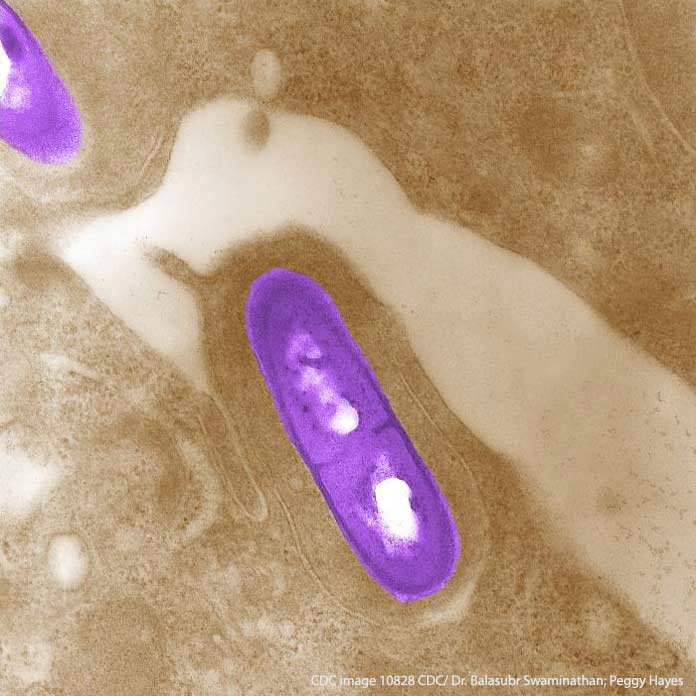Food safety should be a priority year-round. But during the holidays, when the extended family comes together for a meal, it’s especially important. For example, pregnant women, people over 65 and people with compromised immune systems are more likely than others to get sick from Listeria, a bacteria that lurks in some favorite holiday foods including ham, cheese, seafood and potatoes. Among pregnant women, Listeria can cause miscarriage, stillbirth, premature delivery and illness in newborns.
Following food safety tips from the Centers for Disease Control and Prevention (CDC), the U.S. Food and Drug Administration (FDA) and the U.S. Department of Agriculture (USDA) can help minimize these risks.

Listeria Outbreaks and Recalls
In May 2018, a Listeria outbreak linked to mashed potatoes in ready-to-heat meals made in Sweden sickened 11 people killing four of them. The company recalled a variety of products.
Sometimes it’s not the potatoes themselves that are the problem but the foods that are added to them. For example, Fire Roasted Tomato, Spinach, Mozzarella Twice-baked Potatoes were included in a Hy-Vee Salmonella and Listeria recall issued on October 18, 2018. This was a secondary recall issued after Hy-Vee supplier McCain Foods issued a recall for fire-roasted tomatoes.
And, in April 2016, Reser’s Fine Foods of Beaverton, OR had a massive, nationwide recall for potato salad and other deli salads such as egg salad and macaroni salad. That recall was prompted by an onion recall by one of Reser’s suppliers.
In May 2016, CRF Frozen Foods issued one of the largest frozen foods recalls in history. The recall included a variety of fruits and vegetables including frozen potatoes. The recall included two years worth of products packaged between April 26, 2016, and April 26, 2018. It included 358 products sold under 42 brands names.
Listeria Thrives in Cold Temperatures
Unlike some other bacteria, Listeria is not killed by cold temperatures. Using a food thermometer to make sure food is cooked to a temperature that kills bacteria is a key food safety tip. So is washing hands, food preparation surfaces and utensils after handling raw, frozen or uncooked foods and before touching cooked foods.
After food is prepared, make sure that it is not left at room temperature for longer than two hours because dangerous bacteria can multiply.
Leftovers stored in the refrigerator should be consumed within fours days.
Symptoms of a Listeria infection can take a long time to develop. Sometimes as long as 70 days. They are similar to flu symptoms and include nausea, diarrhea, fever, headache, stiff neck, confusion, loss of balance, and muscle aches.
Related
Caramel Apple Listeria Lawsuit Filed in Minnesota
Blue Bell Lawsuit Filed by Attorney Fred Pritzker
My Spouse Has Listeria and I Need Help
Contact Us for a Free Consultation about a Listeria Lawsuit